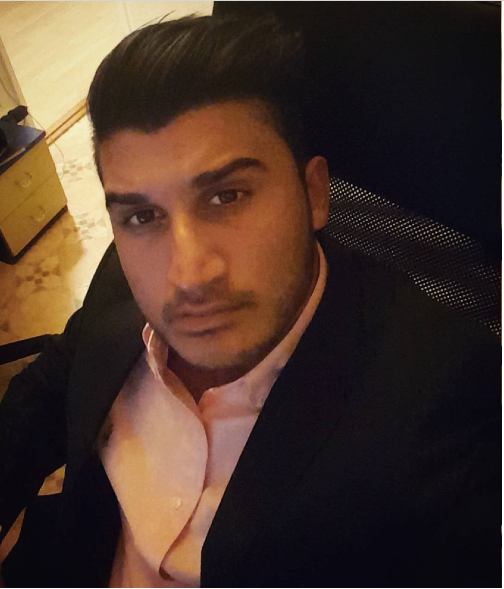(Reposted from two old pieces, sadly evergreen).
Yesterday in Sweden [October 24, 2015], a 20-year-old teaching assistant named Lavin Eskandar was stabbed to death while he was protecting children from a deranged sword-wielding assailant who was attacking the school where Eskandar worked. One other person was killed before police intervened.
A conspicuous number of teachers, professors, and school workers have put their lives on the line to protect students when such horrors have occurred. At one level, I am left speechless by such courage and sacrifice. Yet after all these years in the classroom, I kind of get it, too. We pour so much of our lives into our students. I find it quite sane and comprehensible that someone would make that split-second decision: If you’re coming for my students, you have to go through me first.

Below the fold is a piece I posted in 2012, remembering two other people who made similar sacrifices: Liviu Librescu and Victoria Soto. I wouldn’t change much in that piece. There is no greater love.
Liviu Librescu was a prominent engineering researcher who also happened to be a Holocaust survivor. He was shot to death in the Virginia Tech massacre. At age 76, Librescu was able to hold off the gunman long enough at his classroom door for all but one of his students to escape. It was a horrible death, but also such a heroic and meaningful one. Such heroism was sadly repeated by Victoria Soto and by several others in Connecticut protecting little children three days ago.
At one level, I cannot fathom the sacrificial heroism these men and women displayed. I hope I would display one tiny speck of such bravery, were I myself to confront such a horrifying moment. At another level, though-as a fellow teacher-I have some inkling of what may have motivated people to risk their lives. Scripture tells us: There is no greater love than this, to lay down one’s life for a friend. Many of us don’t actually think about it all too often, but we do love our students.
Of course they aren’t our children. But there are analogies. Most of us-particularly those of us who don’t make the annual buzz for Nobel prizes-will make our greatest impact through our students. However we personally age, every year we see our students’ young beautiful faces enter our classrooms, a new crop of people who will inherit our skills and carry on where we leave off. Whether we like it or not-whether we earn it or not-many will look to us for leadership, knowledge, for our personal example. We will live on, professionally, through them. In different ways, this is true at every level from your local pre-school to the most prestigious Harvard doctoral degree. I’s a huge responsibility, and a huge privilege, too.
I was thinking about this today at my daughter’s s annual holiday choral concert at Homewood-Flossmoor high school. It has a great tradition. At the end of the concert, performers from previous years are invited to join in the Hallelujah chorus. Dozens of alumni ascend the stage. It’s an amazing sight and a wonderful performance.
I captured the moment and the transcendent music from my seat in the audience with my fancy new camera. My lack of a tripod or any semblance of videographic skill produced pretty much what you would expect: crummy, vertigo-inducing production values. But you get the point.
The choral conductor has been doing this for awhile now. Everyone on that stage, from the freshman choir to the paunchy middle-aged guy, has been touched in some way by this work. Watching that performance, scanning the sea of singing faces, one catches a glimpse of a good life’s work teaching young people the value of music, while providing many occasions of joy for a larger community.
As Handel’s music reaches its peak, the idea that you might be willing to put your life on the line for your students didn’t seem so strange. It seemed, in fact, for that moment, the most logical thing in the world.